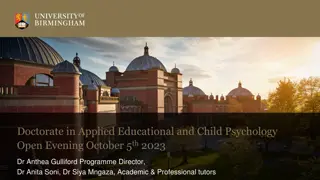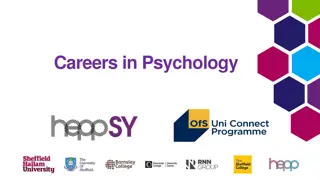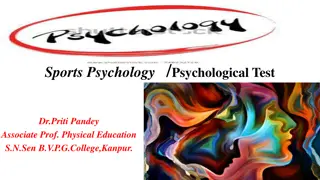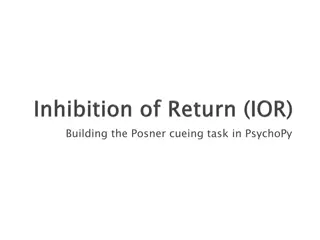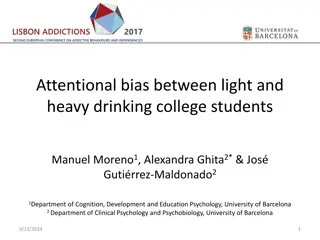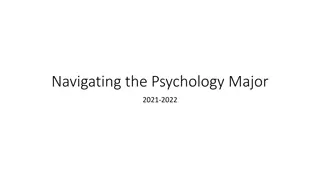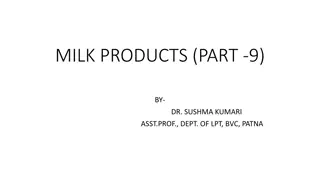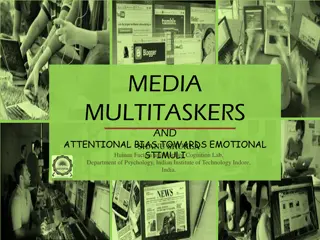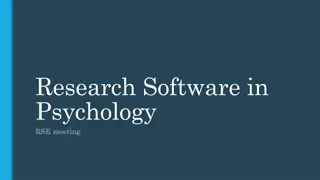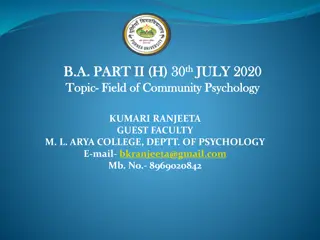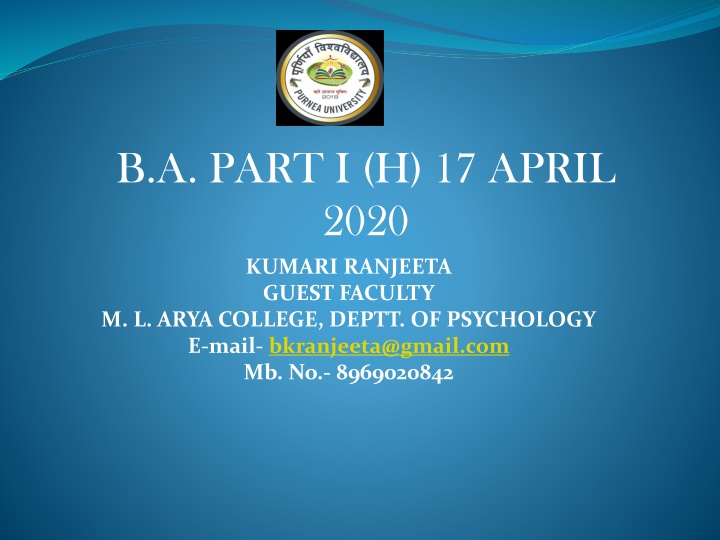
Learning: Insights from Psychology
Explore the concept of learning from a psychological perspective, highlighting its continuous nature from birth to death. Discover how behavioral changes occur as a result of experiences, training, and environmental influences according to prominent psychologists in the field. Gain insights into the key characteristics and importance of the learning process in shaping individuals' responses to stimuli and problem-solving abilities.
Download Presentation

Please find below an Image/Link to download the presentation.
The content on the website is provided AS IS for your information and personal use only. It may not be sold, licensed, or shared on other websites without obtaining consent from the author. If you encounter any issues during the download, it is possible that the publisher has removed the file from their server.
You are allowed to download the files provided on this website for personal or commercial use, subject to the condition that they are used lawfully. All files are the property of their respective owners.
The content on the website is provided AS IS for your information and personal use only. It may not be sold, licensed, or shared on other websites without obtaining consent from the author.
E N D
Presentation Transcript
B.A. PART I (H) 17 APRIL 2020 KUMARI RANJEETA GUEST FACULTY M. L. ARYA COLLEGE, DEPTT. OF PSYCHOLOGY E-mail- bkranjeeta@gmail.com Mb. No.- 8969020842
17 APRIL 2020 B.A. PART I (H) PAPER I, UNIT III, ATTENTIONAL AND PERCEPTUAL PROCESS WHAT IS LEARNING The process of learning is continuous which starts right from the time of birth of an individual and continues till the death. We all are engaged in the learning endeavours in order to develop our adaptive capabilities as per the requirements of the changing environment. For a learning to occur, two things are important: 1. The presence of a stimulus in the environment and 2. The innate dispositions like emotional and instinctual dispositions. A person keeps on learning across all the stages of life, by constructing or reconstructing experiences under the influence of emotional and instinctual dispositions.
17 APRIL 2020 B.A. PART I (H) PAPER I, UNIT III, ATTENTIONAL AND PERCEPTUAL PROCESS Psychologists in general define Learning as relatively permanent behavioural modifications which take place as a result of experience. This definition of learning stresses on three important elements of learning: Learning involves a behavioural change which can be better or worse. This behavioural change should take place as a result of practice and experience. Changes resulting from maturity or growth cannot be considered as learning. This behavioural change must be relatively permanent and last for a relatively long time enough.
17 APRIL 2020 B.A. PART I (H) PAPER I, UNIT III, ATTENTIONAL AND PERCEPTUAL PROCESS John B Watson is one amongst the first thinkers who has proven that behavioural changes occur as a result of learning. Watson is believed to be the founder of Behavioural school of thought, which gained its prominence or acceptability around the first half of the 20th century. Gales defined Learning as the behavioural modification which occurs as a result of experience as well as training. Crow and Crow defined learning as the process of acquisition of knowledge, habits and attitudes. According to E.A, Peel, Learning can be described as a change in the individual which takes place as a result of the environmental change.
17 APRIL 2020 B.A. PART I (H) PAPER I, UNIT III, ATTENTIONAL AND PERCEPTUAL PROCESS H.J. Klausmeir described Learning as a process which leads to some behavioural change as a result of some experience, training, observation, activity, etc. The key characteristics of the learning process are: When described in the simplest possible manner, learning is described as an experience acquisition process. In the complex form, learning can be described as process of acquisition, retention and modification of experience. It re-establishes the relationship between a stimulus and response. It is a method of problem solving and is concerned about making adjustments with the environment. involves all those gamut of activities which may have a relatively permanent effect on the individual.
17 APRIL 2020 B.A. PART I (H) PAPER I, UNIT III, ATTENTIONAL AND PERCEPTUAL PROCESS The process of learning is concerned about experience acquisition, retention of experiences, and experience development in a step by step manner, synthesis of both old and new experiences for creating a new pattern. Learning is concerned about cognitive, conative and affective aspects. Knowledge acquisition process is cognitive, any change in the emotions is affective and conative is acquisition of new habits or skills.

